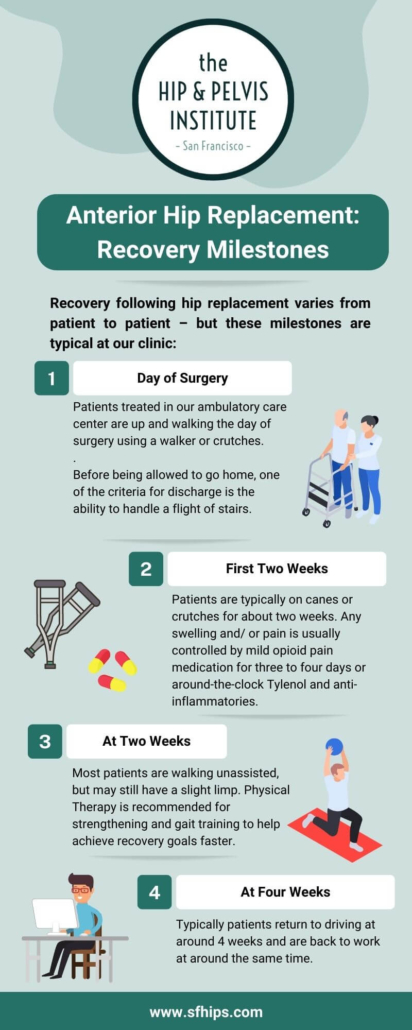
Before you are allowed to go home, one of the criteria for discharge is that you can handle a flight of stairs, even if you don’t have any at home.
We generally find that patients are on canes or crutches for about two weeks. These first two weeks are the bumpiest – there’s often swelling and some pain. This is usually controlled by mild opioid pain medication for three to four days or around-the-clock Tylenol and anti-inflammatories.
The median time to walking unassisted is about two weeks – some people take longer and others that are faster. But that doesn’t mean that your recovery is done. You might still be limping a little, or lacking range of motion, or perhaps you can’t yet walk far. This is where physical therapy comes in to help meet your recovery goals a little faster. We find that patients who go to PT for gait training, strengthening or to work on range of motion hit their recovery goals faster than those who do not.








